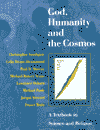Early Conflicts Over DarwinismIt is important not to over-stress the
static nature of Christian theology at the time of Darwin. Before 1850
Schleiermacher and those following him had already questioned whether the doctrine of creation implied any
particular point of temporal origin, whether the Fall implied a particular
event in early human history, and whether God was immutable in the traditional
sense. There were those Christian thinkers who
immediately celebrated evolution. Frederick Temple, who preached the official
sermon at the British Association Meeting in 1860 ‘was ... said by one observer
to have espoused Darwin’s ideas fully.’ Moreover, Christian theologians, reflecting upon the great success of science, and the great tragedies to human civilisation of the World Wars and the Holocaust, have become much more willing to describe a God who suffers, and whose continual creative activity is within a universe characterised by processes of law and chance, processes which God rarely, if ever, sets aside (see law, chance and divine action). The imagery of God the Sovereign Lord, the King of Kings, the creator of the universe out of nothing, the potter who creates according to an inscrutable will, has now to be weighed against descriptions of God ‘the fellow-sufferer who understands’ To investigate how Darwinism developed in the 20th Century see some recent debates about evolution, from Darwinism to neo-Darwinism, and punctuated equilibrium and radical contingency.
Email
link | Feedback | Contributed by: Dr.
Christopher Southgate |





